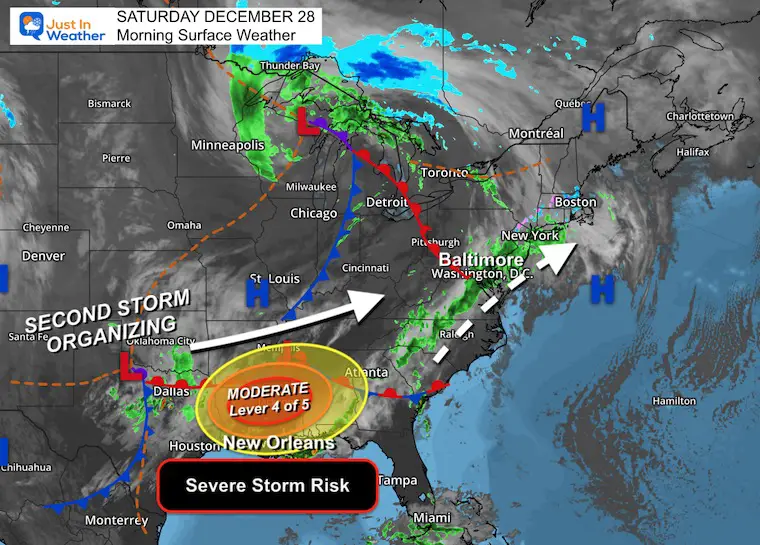We saw Wael Al Dahdouh, Al Jazeera’s Gaza bureau chief, once again bid farewell to a member of his family. The screen – through which he always looked at us – conveyed to us the pain and tears as he bid farewell to his son Hamza, and those around him were trying to end the moment of farewell, as happens in similar cases.
The screen conveyed to us farewell, and the physical end it brings, and the fleeting feelings of the moment and place, and what it also brings in terms of a new beginning for work and a return to the field, and confronting the bleeding pain inside and outside in front of reality and the camera without the ability to scream and cry protractedly, as befits the deceased, or to maintain space. Especially to grieve as death befits.
Nothing but pain and loss
Al-Dahdouh expresses part of the general Palestinian scene, and in Gaza specifically, in light of the war of destruction and revenge that Israel launches against the Gaza Strip without restriction or account.
While the reality surrounding the scene expresses the absence of the simplest things, the most basic meanings of dignity and human values for the Palestinian in the Gaza Strip in light of the ongoing Israeli war under the slogan: stripping people in the Strip of their humanity, and dealing with them as “human animals,” as Defense Minister Yoav Galant said.
There is nothing in Gaza but loss and pain, despite steadfastness, and there is no time to fully feel anything, despite loving life and trying to raise hope. Farewell is quick, sadness is postponed, hunger is present and satiety is postponed, war is present and security is postponed, fear is present and safety is postponed, the tent is present and the state is postponed, asylum is present and the law is postponed, talk is many and action is postponed, condemnations and promises are repeated and implementation is postponed.
Nothing in Gaza resembles life, and nothing resembles death. Everyone is targeted, everyone is exposed to destruction, and there are still those inside Israel calling for causing more pain. Because death alone is a quick punishment that is not commensurate with the desire for revenge of Israeli Heritage Minister Amichai Eliyahu, who did not rule out dropping a nuclear bomb on the Gaza Strip in the first month of the war.
Because death, for the Minister of Heritage, is not commensurate with the shock of last October 7 (2023), nor does it restore deterrence and lost status, nor is it commensurate with the more extreme right that he expresses, and he is a member of the extreme right-wing “Jewish Power” party to which Itamar Ben Gvir Minister belongs. National security is also not compatible with the desire to exploit events in order to liquidate the issue and get rid of everything that is Palestinian.
A sick desire for revenge
Israeli revenge is present within a broad bank of targets, including Gaza, all of Gaza and those in Gaza, and extending outside it to Nablus, Jenin, Tulkarm, and other cities and camps in the West Bank and Jerusalem. Revenge that grows with pain, increases with Palestinian suffering, and demands more death and destruction, within voices and policies controlled by the far and more extreme right.
Voices calling for extermination dominate the scene, and on the margins appear a few voices timidly asking a necessary and important question at the moment and in the future about the brutality of society, turning the discourse of extermination into the dominant discourse inside Israel without accountability, and the future that carries the reality of fear and violence.
It is a question that brings to the fore deeper questions about Gaza in the face of democracy and Western values that are based – as it is supposed – on human protection and respect for rights and freedoms.
Israel, which is not only described as a democratic state, but as the only and unique democracy in the region, as has been repeated over time, and as some Western voices confirm until now, in the background, Tel Aviv continues to violate rights and freedoms, kills people without accountability, and destroys without restrictions, Without dismantling the democratic discourse that contradicts reality, it is as if it is normal for democracy to be restricted in its scope of application, and violations are possible in policy and practice, as long as they occur against a different group, or another who is not known to be from the civilized West.
Contradictory speech
Western democracy is emerging in an American electoral battle in which current President Joe Biden and former President Donald Trump are fighting over the concept of American democracy and those who abused and threatened it, versus those who preserved and supported it.
But that democracy appears in a different way in our Arab world, where death is presented, international law is absent, and former US Vice President Mike Pence signs a missile targeting Lebanon, carrying death and destruction with it.
Pence expresses part of a continuous cycle of speeches, statements, and movements issued by many Western countries, which are partners with Israel in values and democracy, and which did not mind death in Gaza, Lebanon, or Yemen. For what is supposed to be Israel’s self-defense, or its defense of Israel’s security, and the defense – ironically – of stability and prosperity in the region and the world, at a time when contradictions continue, between a discourse demanding restricting the war and not expanding the arenas of confrontation, and policies and positions that aim to expand the war. And ignite the battlefields.
The world is vilely crushing justice every day
In the face of popular pressure and images of human suffering, voices in the West retreat from their previous positions in favor of a more humanitarian discourse, without necessarily condemning Tel Aviv, while others emphasize the talk of aid alone, as if all the difference in facing death is whether it is supposed to happen later or not. Before entering humanitarian aid, and not stopping the killing, protecting human beings and international and humanitarian law, as assumed.
Israel, and the Western countries that support it, engage us in repeated debate about the details, the future, and who will pay the price for the liquidation of the Palestinian, in order to forget the essence of the issue, which is the existence of an occupation that is supposed to be held accountable and stopped, not to continue at the expense of the Palestinian people, neighboring countries, and the world, nor to determine the future of that occupation. The countries and the region, and before that the future of the Palestinian people and the Strip.
Values, laws, and democracy in Gaza are giving way in favor of the abstract truth that Ghassan Kanafani once emphasized, which is that “the world is vilely crushing justice every day,” and still is.
But in the face of this decline, Palestinian steadfastness and steadfastness remain what remains of thyme and olives, and despite the pain and loss, the loftiness of Al-Dahdouh remains like the olive tree, a message not only to the interested viewer, but to the conscience of the world, or what remains of this conscience that remains.






